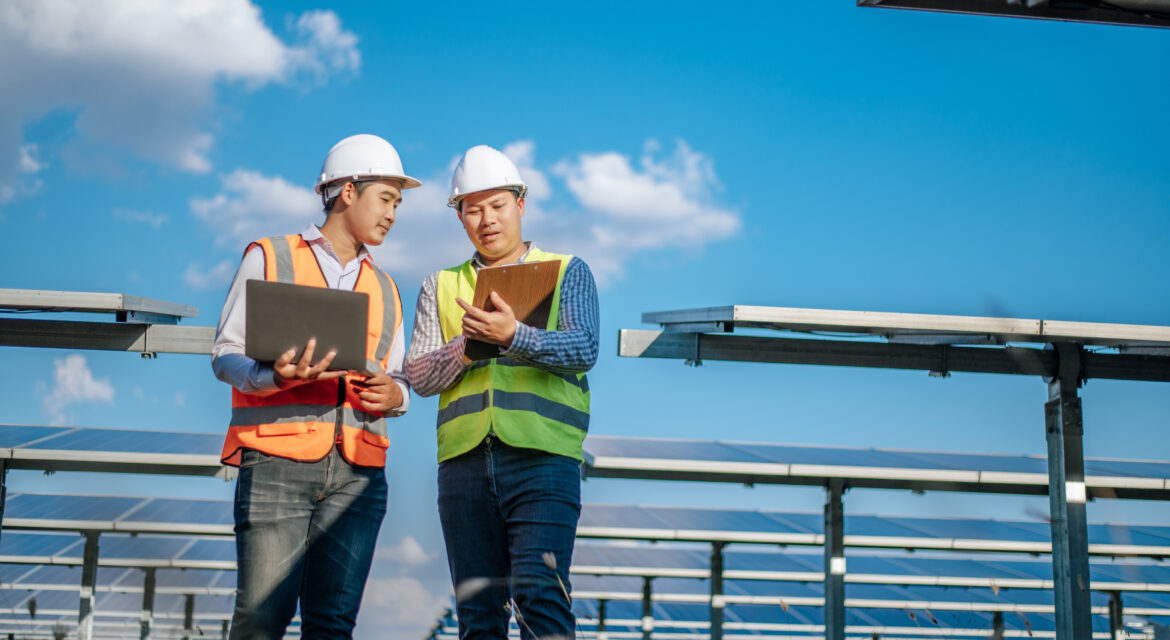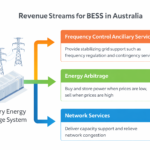Australia’s renewable energy sector is booming, with solar farms at the forefront. However, before construction begins, every project must secure Development Approval (DA). This important step requires careful planning, technical accuracy, and strong communication with local authorities. To avoid costly delays, many solar developers partner with experienced electrical engineering companies. These experts help ensure the project meets all planning, technical, and environmental requirements. Below, we explore the common challenges in the DA process and how engineering consultants support solar farms through to approval and construction.
Stages and Delays in the DA Process
Before building a solar farm, developers need to demonstrate compliance with planning regulations, environmental standards, and community expectations. The Development Approval process typically includes:
- Site feasibility and selection
- Environmental assessments
- Electrical and civil engineering design
- Community consultation
- Submission review and determination
Each stage can trigger delays if not properly managed. For example, late engagement with engineering consultants can lead to design changes that slow down the application process. Similarly, unclear documentation or missing technical details can prompt requests for further information from councils or planning authorities.
Common Challenges in the Development Approval Process
The path to securing Development Approval isn’t always straightforward. Solar farm projects often encounter the following challenges:
Working Through Regulatory Layers
Zoning rules, environmental overlays, and land-use codes differ between states and local councils. Some areas may also have visual impact or acoustic restrictions. Understanding how these layers apply to your site is critical. Overlooking them can lead to rejections or costly resubmissions.
Community Concerns
Local communities may raise concerns about changes to the landscape, farming impacts, or property values. Issues such as glare, noise, and land use can delay approval if not addressed early through consultation and mitigation strategies.
Technical Gaps in Submissions
When Development Applications lack sufficient technical detail or show inconsistencies, councils often request revisions. This can stretch approval timelines, increase costs, and cause unnecessary project delays.
How Engineering Consultants Support the DA Process
An experienced electrical engineering consultant can help solar developers meet planning requirements by combining technical accuracy with regulatory insight. Their involvement can significantly de-risk the approval phase.
Supporting Site Feasibility and Selection
Engineering-led feasibility assessments evaluate solar yield, terrain, access, and grid proximity. These studies also flag any environmental or planning constraints early, helping developers select viable sites and avoid delays in the DA process.
Delivering Compliant Design and Documentation
A strong DA submission includes clear, technically sound documentation that addresses safety, layout, infrastructure, and environmental impact. Electrical engineering companies prepare:
- Equipment specifications
- Site and cable routing plans
- Installation layouts
- Safety and fire design documentation
- Noise and visual impact studies
All documentation is tailored to meet council expectations and applicable standards, ensuring a smooth review process.
Engaging with Councils and Stakeholders
Engineering firms can assist by:
- Coordinating with council planning teams
- Responding to Requests for Information (RFIs)
- Presenting technical information at stakeholder meetings
Ensuring all designs meet local codes and environmental rules
This level of support helps build credibility with local authorities and streamlines the path to approval.
Practical Steps to Improve DA Success
Here are some proven strategies to strengthen your solar project’s DA submission:
Engage Early with Planning Authorities
Schedule a pre-DA meeting to understand site-specific issues. Involving an engineering consultant early helps align your design with local requirements and reduces the risk of revisions later.
Submit Complete and Consistent Technical Documents
Avoid delays by submitting clear, well-structured plans from the outset. Councils commonly expect:
- Site layout and electrical schematics
- Safety and risk assessments
- Environmental reports
- Construction and access route plans
Many engineering companies use tools such as AutoCAD, GIS, and other planning software to ensure submissions meet regulatory standards.
Build Community Support
Community engagement is crucial to gaining approval for large-scale solar projects. Hosting information sessions to explain the project, gather feedback, and highlight local benefits can build trust and reduce opposition. Experienced electrical engineering companies often support these efforts by providing clear technical explanations and helping address stakeholder concerns.
You can also ease community concerns by:
- Adding landscape buffers (e.g., fencing or trees)
- Allowing dual land use (e.g., grazing under panels)
- Creating local jobs and training opportunities
These steps show a genuine commitment to social responsibility and help secure the social license to operate.
Partner with Experts Who Know the DA Landscape
Securing Development Approval for a solar farm requires the right planning, design, and communication. Many delays arise from avoidable technical gaps or incomplete engagement, challenges that experienced electrical engineering companies are well-equipped to manage.
At ElectraGlobe, we help developers navigate the DA process with tailored engineering support, from feasibility to approval. Our team brings decades of experience working on solar projects across Australia. For expert advice or support, get in touch today!
Frequently Asked Questions (FAQs)
If you want to know more about solar farm development, check out the details below!
How to develop a solar farm?
To develop a solar farm in Australia, you need to secure land, complete site and grid feasibility studies, and obtain Development Approval (DA) from the local council. You also need detailed engineering designs to meet all environmental and planning standards.
Are there different DA requirements in each state or council?
Yes. DA requirements vary between states and even between local councils. Some councils have specific guidelines for renewable energy projects, while others follow general rural or industrial land-use codes.







